
- Appointments
- Awards
- Bills & Acts
- Books & Authors
- Committees
- Deaths
- Defence
- Economic
- Environment
- Finance
- Important Days
- International
- Miscellaneous
- National
- Persons in News
- Places in News
- Regional
- Reports
- Resignations
- Science & Technology
- Sports
- COVID-19 SPECIAL
- April 2020 - Exams Resources
- Current Affairs - Quiz
- Current Affairs - Test
- Current Affairs - PDF
Current Affairs April 2020 - Defence
1 - L&T signed pact with Indian Army for advanced IT-enabled network

Larsen & Toubro (L&T) signed an agreement with the Indian Army to set up an advanced IT-enabled system to operate the Armed Forces network under the Network of Spectrum (NFS). The unified network management system will manage, support and operate the countrywide Armed Forces Network under the NFS such as management and control system for all the 7 layers under NFS which interconnects 414 Defence stations. It will cost around Rs 2,500 crore and Rs 5,000 crore.
The project includes the creation of a resilient Cloud-based IT infrastructure on Infrastructure as a service (IAAS) model that allow real-time monitoring of the complete IT network of Indian Army.
2 - US approved sale of anti-ship missiles, torpedoes worth USD 155 million to India

The US State Department has cleared two deals to sell India Harpoon Block II air launched missiles and lightweight torpedoes worth $ 155 million. The anti-ship missiles and the torpedoes would be integrated with the P-8I aircraft, also called the submarine killer.
The 10 AGM-84L Harpoon Block II air launched missiles is estimated to cost $ 92 million. It has a range of about 124 km. The 16 MK 54 All Up Round Lightweight Torpedoes and three MK 54 Exercise Torpedoes are expected to cost $ 63 million.
3 - Indian Navy designed air evacuation pod for COVID-19 emergencies

Naval Aircraft Yard, Kochi has indigenously designed an air evacuation pod (AEP). It will be used for safe air evacuation of COVID-19 patients from remote areas like islands and ships in a fully sealed transfer capsule. It will thus help eliminate the risk of infection for pilots and evacuation teams.
The evacuation pod, weighing 32 Kg, is constructed using aluminium, nitrile rubber and perspex (transparent thermoplastic), costing Rs 50,000 to manufacture.
4 - DRDO developed kiosk COVSACK for COVID-19 sample collection
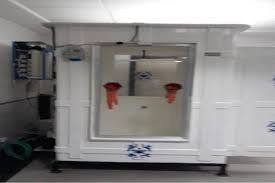
COVID Sample Collection Kiosk (COVSACK) has been developed by the Defence Research and Development Laboratory (DRDL), Hyderabad. The COVSACK is a kiosk for use by healthcare workers for taking COVID-19 samples from suspected infected patients. Patient under test walks into the Kiosk and a nasal or oral swab is taken by health care professional from outside through the built in gloves.
The Kiosk is automatically disinfected, by spraying disinfectant mist for a period of 70 seconds, after the patient leaves the Kiosk. It is further flushed with water & UV light disinfection.
5 - DRDO introduced two new products to enable COVID-19 disinfection process
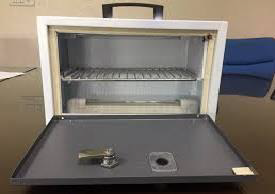
Defence Research and Development Organisation (DRDO) has developed two new products to contribute towards fight against COVID-19.
a) Automatic Mist Based Sanitiser Dispensing Unit: It is a contactless sanitiser dispenser which sprays alcohol based hand rub sanitiser solution for sanitisation of hands while entering the buildings/office complexes, etc.
b) UV Sanitisation Box and Hand-held UV device: It is designed for disinfecting personal belongings like mobile phone, tablets, purse, currency, cover of office files, etc. COVID-19 virus will be deactivated by using UVC lamps in one minute placed equi-distantly in a box with UV dose of 100 mJ/cm2.
6 - DRDO developed India's first mobile virology research lab

Defence Research and Development Organisation developed India's first Mobile Virology Diagnostics and Research Laboratory. It was inaugurated in Hyderabad at the ESI medical college.
The Bio safety level-3 laboratory can test thousand samples for Corona virus daily and can scale up to 2000 in future. The laboratory also has a facility to trial drugs and conduct research on Corona virus. The lab will also help in convalescent plasma-derived therapy, virus culturing for drug screening, and early clinical trials which will be specific for the Indian population.
7 - Exercise Pitch Black 2020 cancelled

Exercise Pitch Black 2020 has been cancelled to ensure compliance with COVID-19-related Government restrictions and to protect the Air Force personnel. Exercise Pitch Black 20 is the Royal Australian Air Forces biennial capstone International Engagement activity with forces participating from a wide range of regional, coalition and allied nations developing and enhancing military relationships at all levels.
The exercise is a biennial three week multi-national large force employment exercise conducted primarily from RAAF Base Darwin and RAAF Base Tindal.
8 - Naval Dockyard, Visakhapatnam manufactured portable multi-feed oxygen manifold
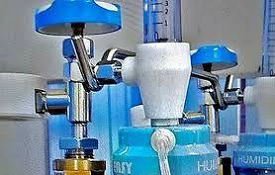
Naval Dockyard, Visakhapatnam has manufactured an innovative ventilator design that can cover six patients simultaneously. The innovative Portable Multi-feed Oxygen Manifold (MOM) uses 6-way radial header fitted to a single cylinder.
The entire set up was made operational by the manufacture of a fine adjustment reducer and specific adapters of requisite dimensions for connecting the oxygen cylinder and the portable MOM. A typical Oxygen providing facility at hospitals comprises an oxygen cylinder feeding only one patient through a Ventimask arrangement.
9 - Naval Dockyard Mumbai designed low cost Temperature Gun
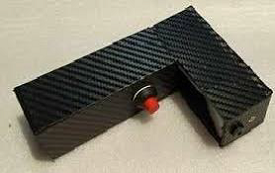
Naval Dockyard, Mumbai has designed and developed its own handheld IR based temperature sensor with accuracy of 0.02 deg Celsius. The instrument has been manufactured under Rs. 1000/ - through in-house resources.
The non-contact thermometer has a Infrared sensor and an LED display integrated with a microcontroller which runs on a 9V battery. This initiative has provided a tool for undertaking screening of large number of personnel at the entry gates of the yard thereby reducing the load on the security sentries at the gate.
10 - DRDO designed casualty evacuation bags
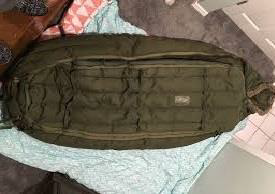
The Defence Research and Development Organisation (DRDO) has designed a casualty evacuation bag to transport or isolate persons infected with Covid-19. The bag is water and air-proof and treated to deal with biological agents.
The bag, in the shape of a rigid cylinder, is made of non-woven, water-repellant fabric with air and waterproof zippers as well as a ventilator. It is coated with a film to cater to a chemical, biological, radiological and nuclear (CBRN) environment with requisite protection against blood and viral penetration.